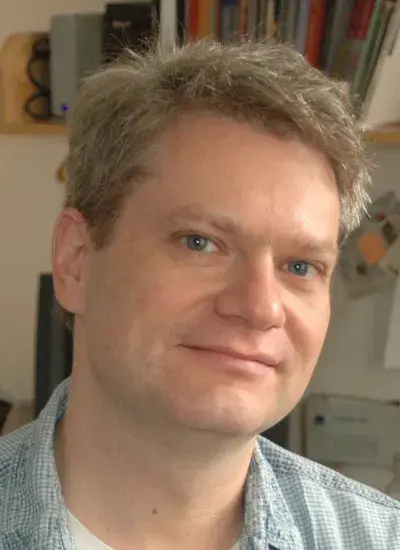Things as Information and Un-Making Them Right

Speaker
Tom Igoe
Associate Arts Professor, ITP in the Tisch School of the Arts, New York University
When
-
Where
Newell-Simon Hall 1305 (Michael Mauldin Auditorium)
Video
Video link
Description
Recent innovations in materials and processes have radically changed how stuff is made. There’s not much talk, though, about how stuff is un-made. At best, we ship our old electronics off to the manufacturer and forget about them. What happens next is often a process that’s messy enough to make sausage-making look pretty.
If we want to innovate sustainably, we’re going to have to close the loop on how we un-make the remains of earlier innovation cycles. That’s not happening as well as it could now. Part of the reason this happens, I suspect, is because the fabrication of new technologies is proprietary information, and therefore recyclers don’t know how to un-make stuff safely and cost effectively. They have to trade off one for the other. But what if electronics came with a list of ingredients, so that recyclers could safely and cost-effectively un-make things? What if all the plans for making a thing were online, so that you knew how it was made, and how to un-make it?
In “Shaping Things”, Bruce Sterling put forth the idea that we could think of disposal and reuse of goods as an information design problem. Drawing on the work of entrepreneurs like Ray Anderson, many interaction design programs have begin teaching service design, thinking about the things we make not as goods to be bought, but as services to be leased. I’d like to propose that we also think about the end of our things’ lives as part of the process of making things. In this talk, I’ll look at some assumptions about how we make interactive things individually and at scale, and propose a few places we might begin making changes.
Speaker's Bio
Tom Igoe is an Associate Arts Professor at the ITP in the Tisch School of the Arts at NYU. He teaches courses and workshops in physical computing and networking, exploring ways to allow digital technologies to sense and respond to a wider range of human physical expression. Coming from a background in theatre, his past work has centered on physical interaction related to live performance and public space. Current research focuses on ecologically sustainable practices in technology development and how open hardware development can contribute to that.
Igoe has written two books on physical computing: Physical Computing: Sensing and Controlling the Physical World with Computers, co-authored with Dan O'Sullivan, and Making Things Talk. Both have been adopted by digital art and design programs around the world. He is a regular contributor to MAKE magazine on the subject as well.
He has consulted for HBO, The American Museum of the Moving Image, EAR Studio, Diller + Scofidio Architects, Eos Orchestra, and others. He is a collaborator on the Arduino open source microcontroller project. He hopes someday to work with monkeys, as well.
Host
Eric Paulos

